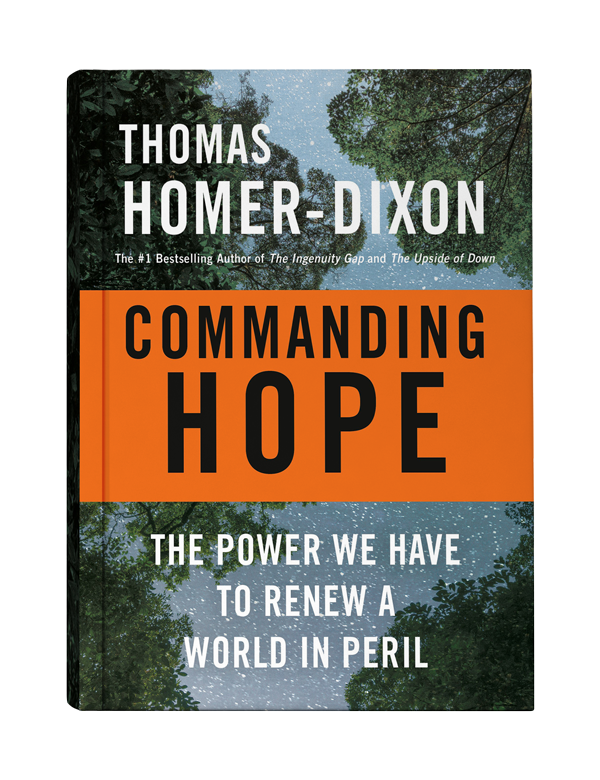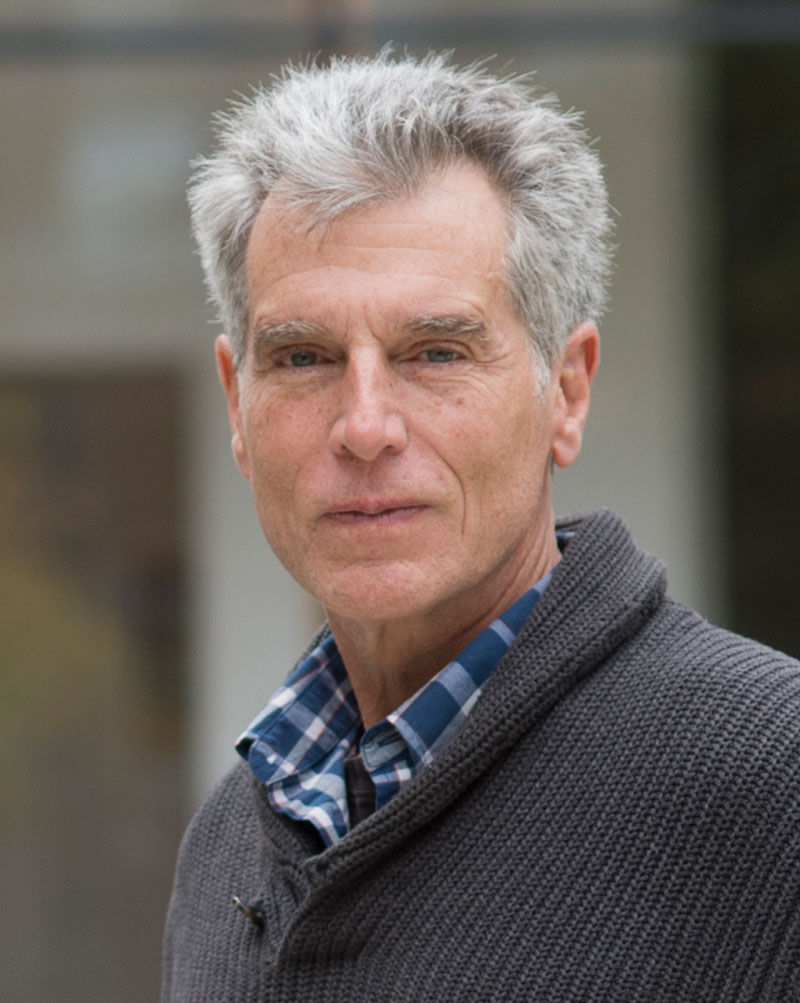
The Guardian
Calling on history, cutting-edge research, complexity science and even The Lord of the Rings, Thomas Homer-Dixon lays out the tools we can command to rescue a world on the brink.
Douglas T. Kenrick, Psychology Today
BOOK SUMMARY
Frightening pandemics, terrible inequality, racism and poverty, rising political authoritarianism, the inescapable climate crisis, and the resuscitated danger of nuclear war.
We know the story. Some choose not to see it. Each of these crises seems so much larger than any one of us can understand or handle. Yet today, they all seem to be going critical simultaneously. In Commanding Hope, I show why and how we got here; and most importantly, I show the powers we possess to renew our imperiled world. This is a hopeful book.
Keep Reading
- To begin, I explain how today’s globe-spanning crises all stem from common sources: beliefs and values that are too self-centered, political systems that are too hidebound, economies that are too rapacious, and technologies that are too dirty for a small, crowded planet with dwindling resources and fraying natural systems.
- I draw on decades of my work on global security and social cohesion to identify the relentless demographic, environmental, political, and economic stresses that will shape humanity’s prospects in the coming decades. I then show what we need—as people, communities, organizations, and societies—to stop and reverse the cascading failure of our natural systems, the crippling of our economies, and the deepening of our social divisions.
- People’s worldviews are the key leverage point, I argue. They’re the place where personal and social action must begin, if we’re to create the virtuous cascades of the systemic, positive change we need.
- A reinvigorated idea of hope is an essential driver of these cascades. We all need hope to thrive in our lives, and in today’s world, we need hope, imagination, and courage more than ever. But in the face of multiplying global threats, the ideas of hope that most people depend upon today are increasingly false, naïve, or passive. Some people put their faith in technological breakthroughs, others in authoritarian leadership, and still others in the idea that things usually turn out fine. But these are hopes that will harm not help us at this point.
- Drawing on complexity science, on research in physics, philosophy, and psychology, on The Lord of the Rings books and Mad Max films, and on individual stories of how others in the past have prevailed over equally dangerous challenges, I illustrate how we can combine the three elements of “commanding hope”—honest, astute, powerful—to make ourselves active protagonists in seeing and achieving a humane future for all.
- I then describe two practical tools we can use to understand our own and others’ worldviews better, which will help us be strategically smart in our actions, together, to take the world to a healthier, more just place.
- And finally, in powerful opposition to the violent, inhumane “Mad Max” worldview that’s otherwise likely to become widely held in coming decades, I describe an alternative “Renew the Future” perspective—one anchored in clear principles of opportunity, safety, justice, and a common feeling of “we-ness”—that can give us all the agency we need to win the battle for tomorrow.

Dr. Homer-Dixon’s two books for a mainstream audience were both #1 bestsellers, and multi-award winning: The Ingenuity Gap: Can We Solve the Problems of the Future? and The Upside of Down: Catastrophe, Creativity, and the Renewal of Civilization. His Environment, Scarcity, and Violence won the 2000 Caldwell Prize of the American Political Science Association.
He is Director and Founder of the Cascade Institute at Royal Road University, and holds a University Research Chair in the Faculty of Environment at the University of Waterloo, Canada. He received his Ph.D. from the Massachusetts Institute of Technology in international relations, defense and arms control policy, and conflict theory, and between 2009 and 2014 was founding director of the Waterloo Institute for Complexity and Innovation.
Keep Reading
His work today focuses on threats to global security in the 21st century, including economic instability, climate change, and energy scarcity; and on how people, organizations, and societies can better resolve conflicts and innovate in response to complex problems. His work draws on political science, economics, environmental studies, geography, cognitive science, social psychology, and complex systems theory.
He has written for non-academic audiences in Foreign Policy, Scientific American, The New York Times, and the Financial Times. His academic writing has appeared in leading journals, including Ambio, International Security, Journal of Peace Research, and Population and Development Review. He is a widely sought speaker around the world. He has also consulted to senior levels of government in the United States, Canada, and the United Kingdom.